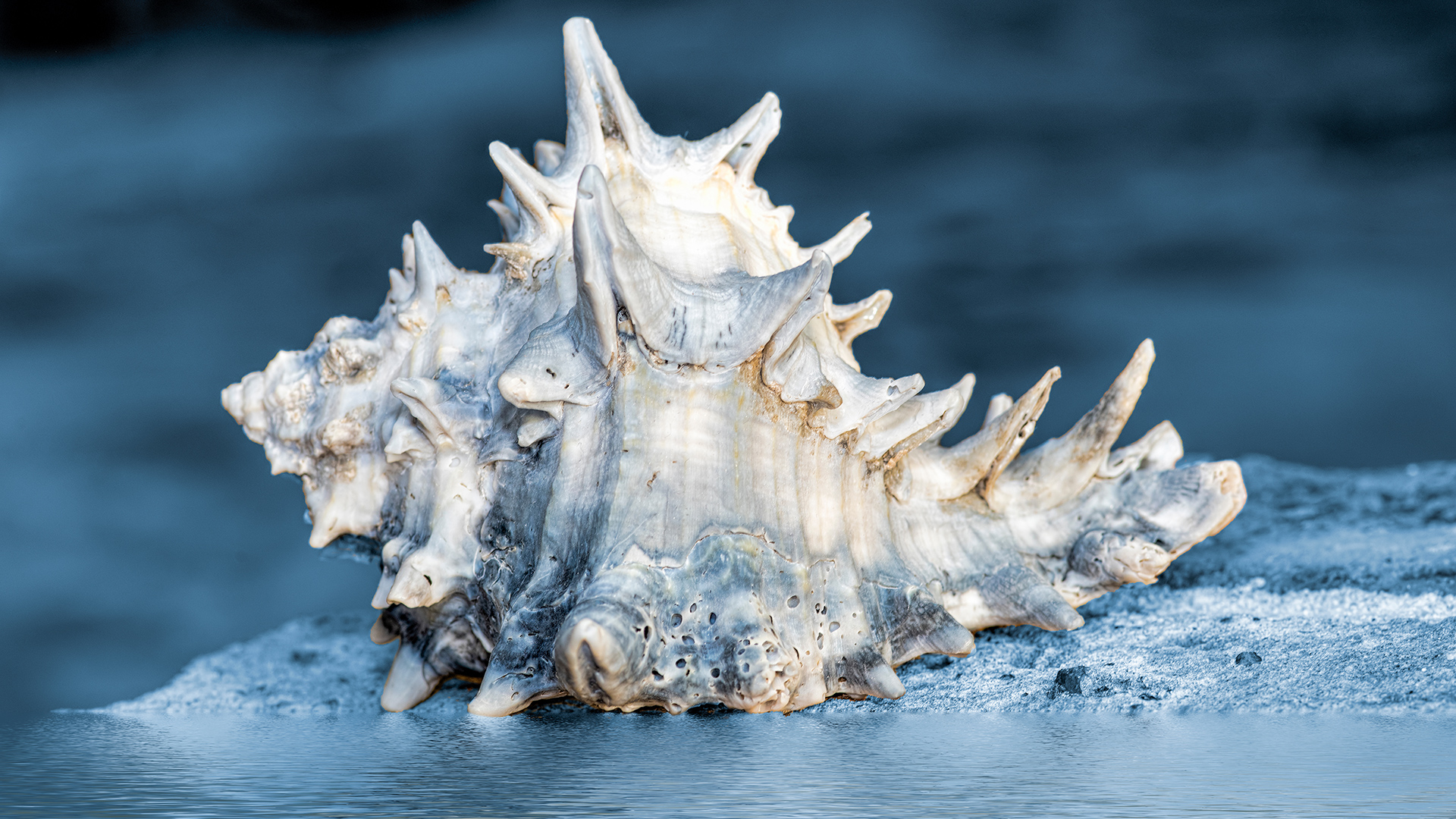
A Talisman From Poseidon
She keeps the murex shell she found on the beach 63 years ago after Hurricane Donna ravaged her island home, and at her house, hurricane season never ends.
November, 1960
The laughing gull lands on the window sill with practiced precision, gray and white wings spread wide and flapping. He turns his head, his fierce eye freezing me in terror on the other side of the glass, until I find voice to croak, “Nanny, Cocky’s here.”
“I’m coming,” my grandmother hollers, groaning as she pushes herself from the rocker next to the oil heater in the hall. She shuffles in blue woolen slippers. “Get me the saltines,” she says.
“Don’t let him inside,” I beg, racing to the kitchen.
“I don’t ever, do I?” Nanny asks. “No reason to be scared of Cocky.”
She is wrong, and I know it.
I hand her a sleeve of the stale saltines my father brings home every week from his salesman’s job at Nabisco. She opens the heavy wooden door and steps onto the porch, closing the door behind her. I back away from the window, watching her rip the package open and break several crackers in half.
I am frightened that my face, not the crackers, is what the gulls want to bite. I cannot breathe.
The bird drops from the sill to the flagstone porch, skittering toward my grandmother. She tosses a handful of crackers, and he rushes to the food, wings outstretched. Throwing his head back, he gulps a cracker. Then he emits three shrill, raucous calls.
Within seconds, the leaden November sky above our small, sandy yard on a North Carolina barrier island fills with a seething storm of wheeling, jostling, screaming gulls, some brave enough to dive onto the porch and challenge Cocky for his bounty.
Nanny, oblivious to the screeching, fighting birds, steps to the edge of the porch, tossing crackers out to the yard. One seagull dives to pluck food from her fingers. She turns back to the porch, dropping crackers for Cocky, who continues to eat and scream, eat and scream. He lords over the birds in the yard, king of the porch.
I am frightened that my face, not the crackers, is what the gulls want to bite. I cannot breathe. I imagine huge, powerful wings shrouding my face, smothering me. Razor-sharp beaks slice into my 9-year-old body. I see my flesh torn. I do not believe I am safe behind the window. I hate the birds because I fear them.
My dreams are haunted by a dead gull. In my dark bedroom, I smell blood and sea water, feel the weight of the bird’s inert body, and hear him scream over the roar of wind.
Watching my grandmother feed the fighting birds, I believe her to be the bravest person alive.
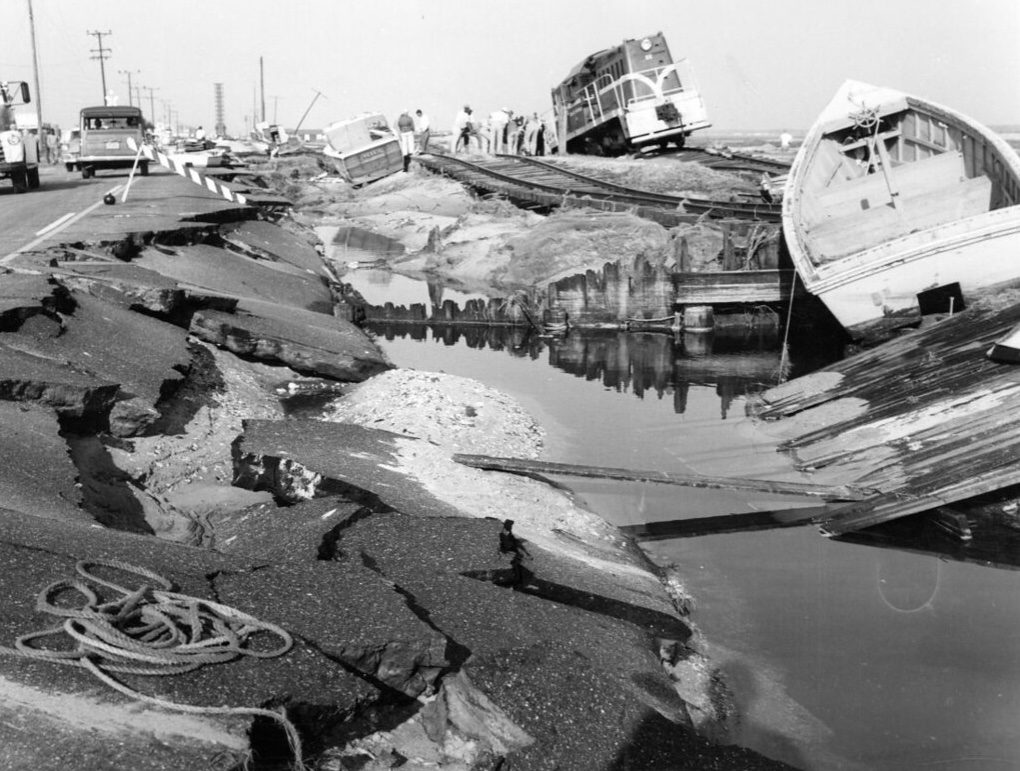
September 12-14, 1960
Towering waves shatter windows and rip the front door from its hinges. The waterline from Hurricane Donna’s assault rings the knotty-pine-paneled walls of our oceanfront home at just about my eye level. For days after the storm passed, my father shovels out mud, seaweed, fish, and small birds.
My mother, younger sister, grandmother, and I evacuate the island to our cousin’s house in a nearby inland town as Donna races up the coast. When we top the drawbridge, the wind whips our car sideways. Mama, terrified, fights the wind, turns the steering wheel, and aims the car back in the right direction. My grandmother, usually a screamer, grows pale and silent until we reach safety on the other side of the bridge.
My father stays on the island to help the grocery store owner stow merchandise on the higher shelves and board up windows. He aids the police department with rescues. He doesn’t sleep for three days.
Later, Daddy tells me about the woman who refuses to leave her upstairs apartment until the water level reaches almost five feet deep around her house. He and a police officer, wading through chest-deep water, carry her, supine and cradling her poodle, between them down a flight of stairs and into the last truck able to make it across the drawbridge. When the winds reach 45 miles per hour, the bridgeman leaves it open, so no vehicles can cross.
The storm rages during the night. Wind wails through the trees outside my cousin’s house, branches snapping and falling. Rain slashes against the windows. The power goes out. Mama lies in bed with me, reading to me by flashlight until, in that way children do in terrifying circumstances, I fall into exhausted sleep. The adults, of course, sit through the night at the kitchen table, talking low, drinking coffee from a thermos, listening to the slashing rain and shrieking wind, praying.
I awaken to silence and darkness. The silence feels more ominous than the thrashing wind. I call for Mama. She comes into the bedroom, her face eerie in the flashlight’s beam.
“It’s okay, honey, we’re in the eye of the storm. You’re safe.”
“Donna can see me?” I ask. Donna has eyes?
Daddy meets us at the door, shovel in hand. Sodden papers from his desk are strewn all over the living room. The refrigerator, tossed on its side in the kitchen, reeks of rotten food. The clothes hanging in my grandmother’s closet drip sea water.
“No, honey. We’re in the middle of the storm. It will be calm for a while, then the wind will start up again.” We learn later that Hurricane Donna’s 50--75-mile-wide eye was one of the largest on record. After the eye crosses over us, the onslaught from the storm’s backside is horrific.
Donna slashes her way from the Caribbean to Canada, striking our island with winds of 105 miles an hour. A hundred and fifty-seven people in the United States and Puerto Rico die during the storm, making her one of the deadliest named hurricanes in East Coast history at the time.
Two days after the storm passed, we are allowed to return to the island, which is still without electricity and running water. Mama drives real slow, avoiding downed power lines. From the top of the bridge, nothing looks as I remember. A giant hand has lifted fishing boats, sailboats, and shrimp boats, smashing them and tossing them on their sides like broken children’s toys. We pass a vacant lot swept clean where a house once stood. The house next door remains, but its front is torn away, exposing the interior. I can see soup cans on the kitchen shelves.
Mama turns the car onto our sand-covered street. Daddy meets us at the door, shovel in hand. Sodden papers from his desk are strewn all over the living room. The refrigerator, tossed on its side in the kitchen, reeks of rotten food. The clothes hanging in my grandmother’s closet drip sea water.
I tramp through mud to my bedroom, freezing in the doorway. A seagull, its neck slit by jagged glass, is splayed, bloody and dead, on my bed.
I run to my father, tugging on his sleeve. “Please, please, get the dead bird off my bed,” I beg.
My father pauses his shoveling mud out the front door. “Go clean it up, honey. I’m busy,” he says. I’m sure he is exhausted and in shock, forgetting I am in shock, too, forgetting how big a seagull is compared to a 9-year-old girl.
I stand as far away from the seawater- and blood-soaked bed as possible, terrified that the bird will rise to attack me. Gathering the corners of my pink seersucker bedspread to make an envelope, I fold it around the bird so I don’t have to touch it. I drag the bundle through the muddy hallway, past my grandmother’s overturned rocker, and out the back door. I am sure I feel the gull spread its wings inside its shroud.
Once I’ve taken the bird to the backyard, knowing Daddy will bury it, I decide I’m finished with chores. The September sun shines from a cloudless, electric blue sky, and beckons me to the strand.
“No!” Mama screams when I ask if I can go to the water’s edge. “You have no idea what’s under that sand — nails, glass, wood. You’ll cut your feet on a piece of metal and get lockjaw.”
When she turns back to scrubbing mud from the living room wall, I skid into my flip-flops and sneak out the back door. Avoiding the bulk wrapped in my bedspread, I race over the dune to the strand.
Mama is right, of course. Much of the beach is eroded away, and jagged sand cliffs, higher than my head, ribbon the shore in some areas, while other areas of the strand are washed flat. At the high tide line, our neighbor’s stairs lay splintered next to an oil tank, which I realize belongs to us. A roof from somewhere balances at the edge of a cliff. Twists of metal and nail-studded boards rise from the sand, and broken glass glitters everywhere.
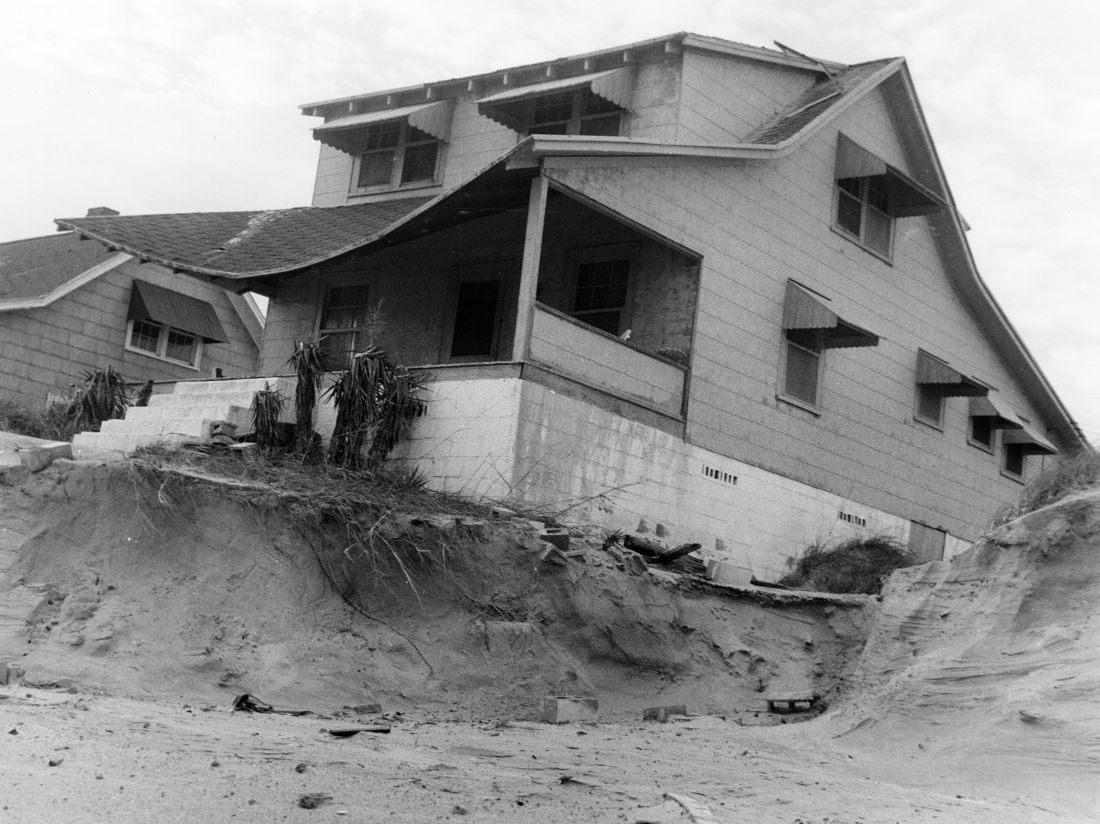
This morning, the ocean rests flat in a gentle breeze. The sea — roiling and foaming with mountainous waves yesterday — now is calm. Diamonds of light play across the surface as small waves crest, becoming Queen Anne’s Lace on the shore. The hurricane might never have never been.
Shells! More shells than I had ever seen on our beach. A treasure trove of native shells — lettered olives, tulips, scallops, channeled whelks, conchs, jingles, turkey wings, augers — mound in piles up to my ankles. On any other day, I would kneel in the sand for hours to select the most perfect specimen of each to take home.
Instead, I find a special shell that survived floating inside the calm eye of the hurricane from the Caribbean all the way to my North Carolina shore, I almost step on it, but it’s so white sunlight bounces off it. Not a conch or whelk, but similar in shape and about six inches long, the exterior worn, with small ridges and bumps, suggesting it once was covered in whorls of spines. Making sure no animal lives inside, I hold the shell to my ear. The ocean roars from its faded pink interior.
I race home, hoping my shell book survived the storm, and praying that Mama didn’t notice I had been gone. I tiptoe inside, then backpedal at my bedroom door, afraid some part of the gull may still be there. My damp, but safe shell book still rests in its place high on the shelf across the room.
Murex.
Aristotle named this shell murex, making it one of the oldest shell names still in use by scientists. Prized for centuries for the purple dyes made from the mucus of the animal who lives in the shell, murex is thought to be the source for the royal purple robes of the powerful Phoenicians.
From the Caribbean, I read. Aristotle named this shell murex, making it one of the oldest shell names still in use by scientists. Prized for centuries for the purple dyes made from the mucus of the animal who lives in the shell, murex is thought to be the source for the royal purple robes of the powerful Phoenicians. Some researchers believe that murex dyed the clothing of the high priest in the temple of Jerusalem. It is still used today as dye for the ritual fringes — ziziths — on the shawls, or talliths, worn by Jewish men at worship.
I don’t understand much of what I read about the murex, of course, but even at 9 years old, I know I hold magic from afar in my hand.
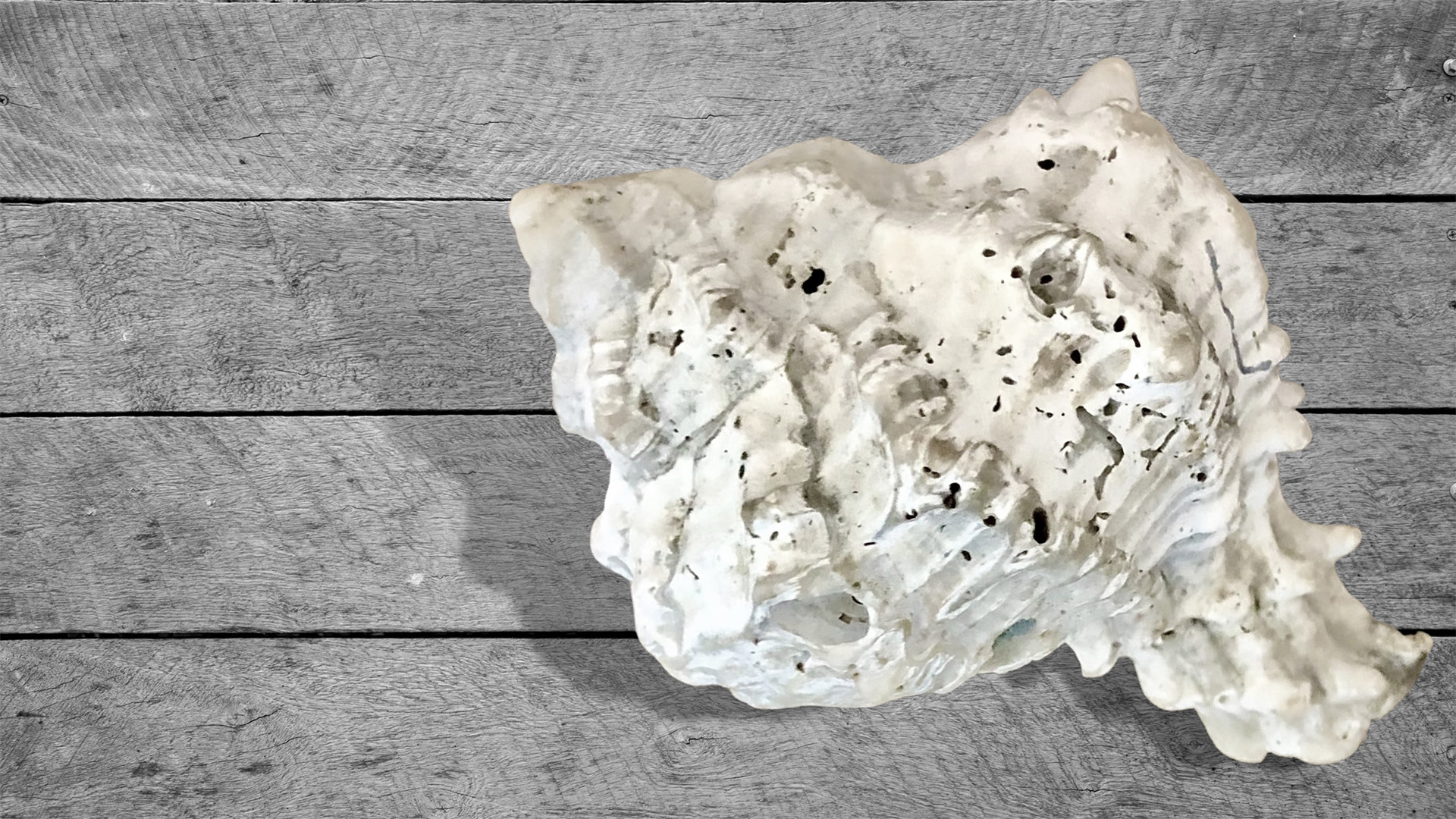
November 30, 2022
I know deep in my soul the pull of the sea. To stand on the shore watching the sun rise as a flock of pelicans glide over my head, to dive into a cresting wave, to sail beyond sight of land, to fish beside a great blue heron in the marsh, to sing the moon up are gifts I’ve treasured all my life. I understand why I, and others, are willing to risk so much for them.
My family and neighbors were fortunate 62 years ago, experiencing relatively minor damage from Hurricane Donna, in comparison to the damage caused by more recent storms. As a 9-year-old child, I did not know that Donna was a harbinger of changes to come to my barrier island, and I watch those changes continue every day.
Small, bony fish called spot migrate south off our coast, usually in early November. Every year I fry a big mess of spot for friends when the fish arrive. This year, no spot were being caught. “Water’s too warm,” says a fishing friend. Not until a couple of days before Thanksgiving was the ocean cool enough for a school of spot to arrive. As oceans continue to warm, how many more spot dinners will we be granted?
I no longer live in a house facing the sea. The cost of oceanfront property far exceeds what I can afford, and facing the sea’s potential wrath is a risk I’m unwilling to take. Today I live in an old cottage nestled in the maritime forest. I don’t know how much longer I can afford to live here, or how long the forest itself will stand the onslaught of development.
I bear witness to the beauty of the fragile ecosystem of my home when I see loss around me. When the maritime forest falls victim to development, when owls no longer court through the night because live oaks are felled, when the great blue heron doesn’t return in autumn because the marsh is polluted, I grieve.
My fear of seagulls has lessened, but not disappeared. Cocky continues to haunt my dreams. Today I can walk on the beach with gulls wheeling around me, as long as no one near me feeds them.
I bear witness to the beauty of the fragile ecosystem of my home when I see hope around me. When I see organizations cleaning manmade debris from the water, or hear of a political victory that supports the coast, or saves turtles, or a fish species, or nesting shore birds, I rejoice. I understand the value of shore birds to my island’s ecosystem, and I celebrate when birds are better protected.
My fear of seagulls has lessened, but not disappeared. Cocky continues to haunt my dreams. Today I can walk on the beach with gulls wheeling around me, as long as no one near me feeds them. I sit for hours in a boat in the marsh as herons and egrets hunt nearby in the cordgrass. The birds in my yard — crows, robins, wrens, cardinals, doves, hawks, owls — give me great pleasure, but to be trapped in a building with a bird fluttering around my head, no matter its size, brings abject terror.
I am a prepared islander. I complete preparations well before the National Hurricane Center declares hurricane season’s arrival on the first day of June each year. I hold my breath until after the week of September 15, historically the most active week of the season. I sigh in gratitude and relief, dragging my evacuation box back to storage on November 30, the official end date of the season.
Barrier islands have become more susceptible to the ravages of storms as landowners destroy natural protection afforded by dunes and maritime forests to make way for more buildings, roads, and people. Scientists and local, state, and federal government officials have tested many techniques to hold sand in place, to impede sea-level rise, and to slow the island’s southward migration as sands and tides shift. Some attempts have been successful — for example, building berms and planting them with native plants whose root systems hold sand in place — at least until the next storm hits.
Climatologists believe hurricanes are forming more often, striking at greater intensity, causing more deaths and damage, thanks to the rise in sea-water temperature, atmospheric changes, and population density. Hurricanes and rising oceans are only pieces of the puzzle. Loss of habitat, overfishing, pollution, and construction also play roles in the loss we face.
I am a superstitious islander. Hurricane season doesn’t end at my house just because I put away my emergency supplies when the National Hurricane Center says so. Hurricane season never ends at my house. All these many years later, I know the murex brought by Hurricane Donna is a gift from Poseidon, a talisman protecting me against the ravages of storms.
About the author
Deb Bowen lives and writes on a North Carolina barrier island. She is the co-author of "A Good Friend for Bad Times: Helping Others Through Grief." She has a novel and several other works in progress.



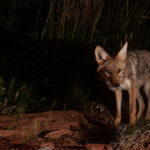
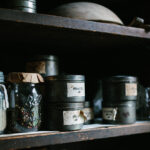

Wonderful and moving words about a difficult past event and our worrisome future world. Your vivid story put me right in the midst of a hurricane, and also made me consider the chaos we face today. Thank you, Deb.
Thank you so much for your thoughts, Renee. I’m honored that this story was so meaningful to you, and I hope we can change the direction of the ecological crisis on the coast – and around the globe. Best regards, Deb
Beautiful writing. Gifts from the sea. The murex shell is a wonderful symbol of all those other precious details you saved from that vulnerable age of 9. I don’t know how you saved so many precise and imaginative details , but it reminds me of how there’s something in good writing that outlasts the wash of Time. Also, I share your anxiety about the slow tragedy of what our crowded lifestyle is doing to the oceans and lands.
Thank you so much for your kind comments, and I’m glad to know you, too, feel the pain of so much loss in the sea and on the shore. I appreciate you reading my work and I hope we can – all of us – make a difference. Blessings, Deb
I just finished “A Talisman…” and I feel as though you led me on a visit to your seaside home – a far cry from my own Michigan Northwoods. I could feel the sand under my feet, the breeze on my face, and smell the salt air. I could see the gulls, (which we have here on our Great Lakes) and I loved saying the names of all those seashells – none of which I recognize. I looked up the murex. What a fearsome-looking thing with all its long spines!
My heart ached to read of Donna’s devastation and I remember that you had another terrific storm not long ago.
Frankly, I don’t know how you do it – storms, not birds, frighten me, but I understand your love of Place and the spirit that abides there ‘twixt the sand and the sea.
Blessings to you, Deb. Thank you for sharing a part of your strand with us.
Thank you so much for your thoughtful post! I’m happy to share my strand with you, and so appreciate your honoring it with your kind words. Blessings, Deb
Beautifully written and I was right there with you. I agree with your worry about the future of our beautiful resources. Thanks for sharing this Deb.
Terri Spinney
Gosh Terri, I don’t know how I missed your kind comment – thank you so much! I know of the beauty of your home too, and know we share the same concerns. May we see changes for the better! Blessings, Deb
I loved this! I especially resonated with your sentiments here: “I bear witness to the beauty of the fragile ecosystem of my home when I see loss around me…” It is sad to see ecosystems crashing and sea levels rising, getting warmer and spawning storms like you mentioned in your article more frequently. Great story all around!
Thank you so much for your kind comment! I so appreciate you reading my work, and am happy to know we share our concern for our beautiful land and sea. Blessings, Deb
Beautifully written story. The reader feels each moment of terror and delight. I feel as if I were there. I live in Colorado and safe from hurricanes, but the pull of the sea has always been so alluring. Thank you for the experience.
Thank you so much for your lovely comment! I love Colorado, and find it difficult to express how I feel when I watch a golden eagle soar on the road to Boulder, or spend time with chipmunks and magpies in Rocky Mountain National Park. We both live in amazing places, and are blessed! In gratitude, Deb